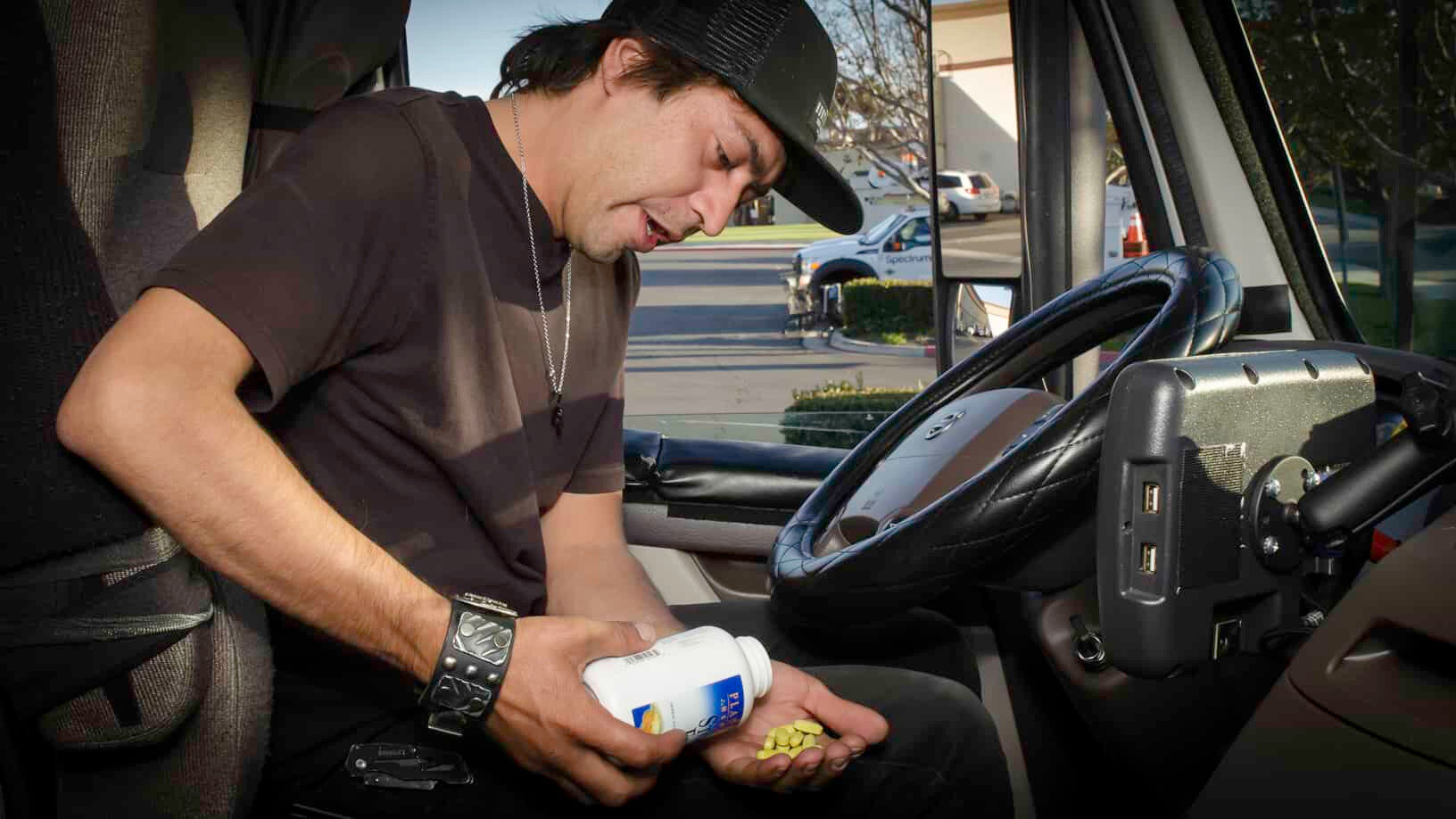
A loophole in the Drug and Alcohol Clearinghouse could allow drivers that fail to test to continue operating a motor vehicle. (Photo: Jim Allen/FreightWaves)
The Federal Motor Carrier Safety Administration’s (FMCSA) Drug and Alcohol Clearinghouse has now been operational for roughly six months, and despite some technical difficulties during the initial stages of its rollout, the platform has been working well thus far. The data generated through the Clearinghouse has been very valuable for the trucking industry to better understand the workforce’s use of drugs and alcohol and the reported rates of various violations.
In a summary report, FMCSA noted that of the 21,156 total positive tests submitted to the Clearinghouse as of June 1, almost half were for marijuana. As Darrin Grondel, vice president of traffic safety and government relations at the Foundation for Advancing Alcohol Responsibility, explained at TCA’s virtual Safety & Security Meeting, expanding marijuana legalization laws will continue to present a challenge not only to the safety of the trucking industry, but to the entire motoring public.
That is why ensuring the Drug and Alcohol Clearinghouse is being fully utilized by all relevant parties is of the utmost importance. On April 28, FMCSA published a Notice of Proposed Rulemaking (NPRM) in the Federal Register pertaining to the use of Clearinghouse data by State Driver’s Licensing Agencies (SDLAs). The NPRM seeks to require SDLAs to deny a licensing transaction to individuals who are applying for a CDL or CLP and who have a violation that appears as a result of a Clearinghouse query. The NPRM also proposes that SDLAs must implement a mandatory downgrade on licenses when they receive a push alert that a new violation has appeared in the Clearinghouse. While these provisions may seem commonsense, they are necessary to close alarming reporting loopholes that currently exist with the communications between states and the Clearinghouse.
TCA is supportive of the NPRM but has encouraged FMCSA to go even farther to keep motor carriers aware of these state licensing transactions. As we noted in our comments to the Agency, if a driver is seeking new employment and fails a drug test at that prospective new employer, their current employer would not know this had happened unless they conducted a Clearinghouse query, which could take place several months after the violation occurred. Additionally, TCA is concerned that without an additional notice from the Clearinghouse or SDLA to the carrier, drivers could theoretically continue operating a CMV until they are caught by law enforcement. Drivers who operate in violation of the federal regulations could pose a significant danger to the motoring public, and if carriers are not informed of their drivers’ violations, they must not be held liable for any amount of time that these individuals are in command of a CMV.
While we applaud FMCSA for its work to implement the Drug and Alcohol Clearinghouse, and now to ensure those who violate the federal regulations are held accountable for their actions, we believe that there is more work to be done on this issue. Because trucking is a zero-tolerance industry, TCA and our members will continue to push for the Clearinghouse to incorporate an increasing amount of testing data and to communicate more effectively with all parties involved. We are making strides to combat drunk and drugged driving, and we have no plans to stop before all impaired drivers are taken off our nation’s roadways.
